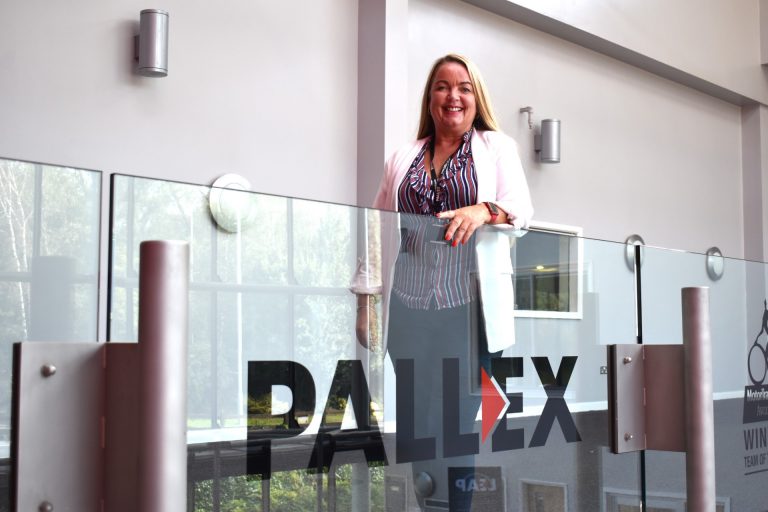Suite of support programmes unveiled for Greater Lincolnshire and Rutland businesses
Young people to learn entrepreneurial skills with new Chesterfield programme
Sustainable heating and cooling provider makes Chesterfield’s Northern Gateway Enterprise Centre its home
Government’s funding decision will not end stand-alone Greater Lincolnshire LEP
Millions to be invested in net zero glasshouse development near Lincoln
A new net zero glasshouse research and development facility is set to be built on the University of Lincoln’s Riseholme campus.
Acres of poppies planned for Remembrance by Derby firm
Derby-based Acres Engineering has embarked on a major initiative to raise money for the Royal British Legion (RBL).
The family firm, which is based in Melbourne and counts some of the world’s biggest names in rail, automotive and aerospace as its customers, is creating a 3-petal poppy for Remembrance Day, with all profits going to the RBL.
The idea was conceived whilst hosting a range of STEM activities at their recent open day to mark National Manufacturing Week.
As part of the event, Acres invited students from local schools to manufacture and take home their own poppy in order to understand the significance of Remembrance.
Acres themselves have a long and proud association with the armed forces as a Gold member of the Armed Forces Covenant.
This is an agreement that those who serve or who have served in the armed forces, and their families, should be treated with fairness and respect in the communities, economy and society they serve with their lives.
“We plan to manufacture at least 2,000 poppies,” explains Acres Engineering’s MD Luke Parker, “but we hope to actually make many more if the demand is there from our clients, suppliers, friends of the firm and other like-minded supporters, which we believe it is.
“Growing up in the local area I attended Ashby School and I was stunned when I learned that 144 ex-students are remembered each year from my old school alone. As such, we are ring fencing 144 of the initial run and donating them to Ashby School for their Remembrance garden.”
The project has been endorsed by veteran Brigadier Edward Wilkinson of the Worcestershire and Sherwood Foresters Regiment who added: “This Poppy will be a lasting memory wherever it is placed due to its construction. Its longevity will be a reflection of our Remembrance. It is fantastic what Luke Parker and Acres Engineering are doing to raise money for the Royal British Legion.”
The Acres Remembrance Poppy is available in single, large or bulk orders via their online shop.
Fall in corporate insolvencies a ‘false dawn’
A surprise decrease in the number of insolvent businesses in England and Wales should be viewed with caution and is far more likely to be a ‘false dawn’ than an indication of economic recovery.
This is according to the Midlands branch of insolvency and restructuring body R3 and follows latest statistics published by the Insolvency Service which show that corporate insolvencies decreased by 15.2% in September 2023 to a total of 1,967 compared to August’s total of 2,319, but when compared to September 2022’s figure of 1,688 they increased by 16.5%.
The government statistics also indicate that corporate insolvencies increased by 35.4% from September 2021’s total of 1,453 and by 112% from September 2020’s total of 928. There is also a rise of 30.4% compared to the pre-pandemic figure of 1,509 in September 2019.
R3 Midlands chair Stephen Rome, a director at law firm Thursfields in the region, said: “The September 2023 numbers are the highest we’ve seen for this month in four years as a combination of economic issues, director fatigue and the post-COVID insolvency lag see a rising amount of firms use corporate insolvency processes to resolve their financial issues.
“Compared to September 2022, more directors have turned to Creditors’ Voluntary Liquidations to wind down their businesses and more creditors have turned to Compulsory Liquidations to recover the debts they are owed. While the statistics for these processes are higher than they were pre-pandemic, administration numbers have yet to return to 2019 levels, although they are higher than this time last year.
“It’s clear that the challenging trading climate is taking its toll. Businesses are operating in a climate where people are cutting back on their spending on non-essential items, while at the same time the costs of operating a business remain high – and will only increase as the weather gets colder and the cost of borrowing and servicing existing debts get more expensive.
“Our message to company directors is simple: if you’re worried about your business, seek advice. It’s a hard conversation to have, let alone start, but you’ll have more options open to you and more time to take a decision if you begin it when your worries are fresh, rather than when they’ve spiralled.”












